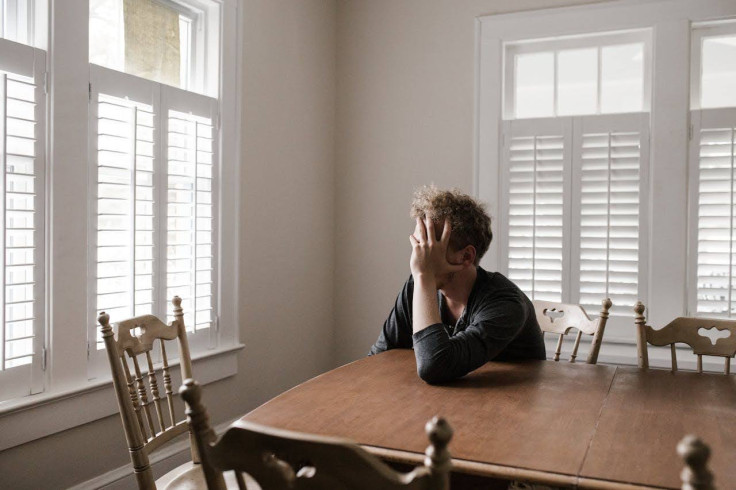
Mental health challenges can be notoriously difficult to recognize, even for the person who is struggling emotionally and cognitively. That's why it's critical to recognize and acknowledge the earliest signs of a potential mental health problem or disorder. Without intervention, mental health issues can worsen and make everyday tasks and relationships seem complicated, frustrating, and overwhelming.
Unfortunately, many people overlook the indicators of mental health concerns in themselves and others. As a result, they don't get the help they need from professional providers. According to recent statistics, nearly one-quarter of all adults experienced a mental health episode between 2023 and 2024. Yet a high percentage didn't receive treatment for their illnesses, making it impossible for them to recover and thrive.
There's good news, though: Thanks to a growing spotlight on mental health, an increasing number of individuals are prioritizing their mental health. And the hope is that their willingness to take care of their mental well-being will mean far fewer people have to suffer alone. Instead, they can begin to spot some of the more prevalent signs of a mental health crisis and get treated for their conditions.
1. Feeling like life is losing its meaning.
A hallmark characteristic of mental health conditions is an overarching feeling that there's no meaning to one's life. Every day starts to blend with the one before it, resulting in the sensation that taking any steps forward is pointless. As a result, people will often begin to withdraw from their usually beloved activities, stop taking care of themselves, and resist assistance from friends and family.
Ending this cycle alone can seem nearly impossible. However, as the top inpatient and outpatient mental health center Pathways explains, it's quite possible to regain a sense of freedom, accomplishment, and self-love through a steady process of "working from the inside out." For example, Pathways concentrates on offering its clients a personalized, holistic, and individual-focused (and family-focused) approach to treatment. That way, clients can establish a new, positive roadmap based on positive change, self-affirmation, and revised belief structures.
2. Experiencing unusual or abnormal sleep disturbances.
Another trait that's frequently associated with mental health disorders is sleeping too much or too little. In fact, around three-quarters of people with clinical depression also have insomnia, per data culled by a recent study, a sleep solutions and information provider. But not everyone with depression and anxiety can't sleep; plenty have trouble staying awake.
This doesn't mean that every sleepless night or drowsy daytime experience is a signal of mental health problems. Nonetheless, chronic sleep disturbances or sleep changes warrant a visit to a doctor. Through strategies including talk therapy and medicinal treatment, people can get their sleep back on track. Remember: Even a few lost hours of sleep can lead to deprivation symptoms like nodding off during the day.
3. Having a difficult time focusing.
It's not difficult to see why a lack of concentration typically accompanies mental health struggles. When someone's mind is occupied with depressive thoughts, anxiety, guilt, and fear, the brain may not have the capacity to focus on responsibilities. Regrettably, this can be more than just annoying — it can be dangerous.
For instance, workers who operate heavy machinery or drive vehicles for their jobs may be at greater risk of injury or death if they can't stay focused. When focused studies looked into this phenomenon, its team found that about four out of 10 manual laborers admitted that their mental health was hindering their performance. Consequently, those employees had a greater likelihood of being involved in a workplace accident.
4. Going through emotional rollercoasters.
Emotional highs and lows are consistently reported by people with unmanaged mental health concerns. One minute, they might be filled with sadness and unable to do anything. The next moment, they might have a sudden burst of energy or agitation. While the "highs" may seem exhilarating, they don't last for long, which makes the emotional dips even harder to bear.
Spending days on a rollercoaster of mood swings can make holding a job or enjoying time with others difficult. It can also be perplexing to suddenly go from feeling "down" or angry to being highly creative or productive. Though some mood changes can be temporary, some specialty healthcare services companies often caution against normalizing moodiness and recommend seeking medical advice. Highs and lows may be signs of bipolar disorder, which calls for a professional diagnosis.
5. Avoiding social situations and interactions.
Not everyone loves to be the center of attention at parties and events. That said, most people like to at least occasionally engage in one-on-one or group social activities. When the desire to be around others starts to fade, an untreated mental health illness could be the reason.
Mental health diseases can make it more difficult to relate in social settings. That's a reason so many individuals wrestling with their mental health become withdrawn or reclusive. Interestingly, newer strategies such as "friendship therapy" pose novel ways to bring friends together and reduce the impact of mental health issues. A recent article outlines the potential benefits of friendship therapy, including the opportunity to build better buddy connections. And tight human-to-human bonds can help alleviate the intensity of mental health struggles.
For too long, mental health was a stigmatized topic. Today, it's been brought out of the shadows. However, mental health challenges can't be addressed until the signs of mental imbalance are more fully understood and acted upon. When they are, hope, health, and healing are achievable.







